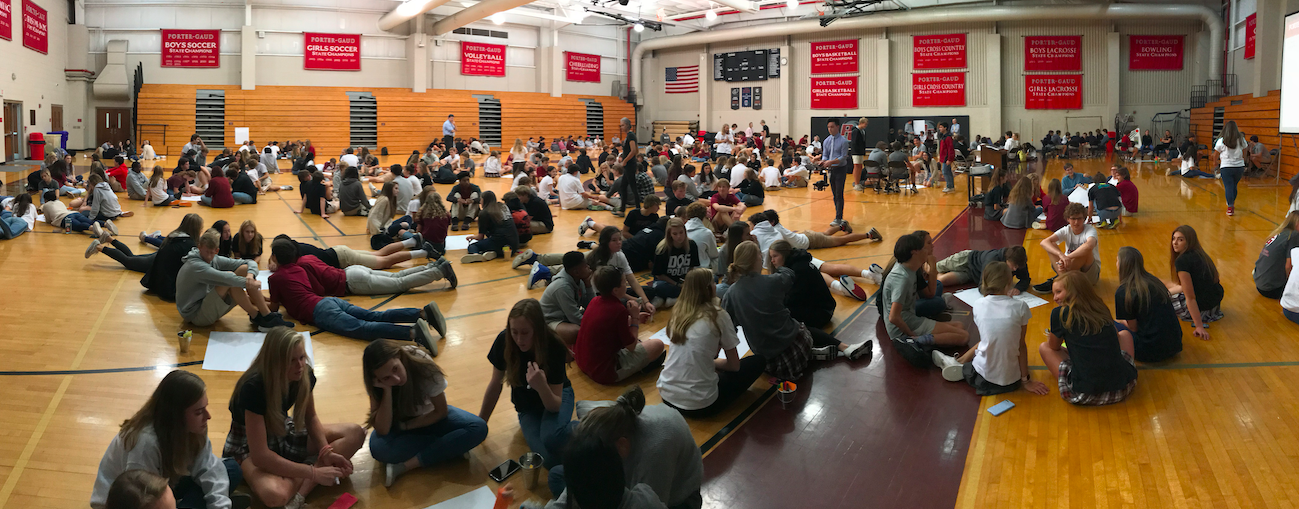Is it the natural end of a somewhat off-the-grid vacation on tropical islands and rain forest pathways? Or is it that my friends around the world care deeply about education and that the themes of our times are universal and pressing? Some of both.
In the last two days, as I wind down this wonderful re-visit to and with old friends at Silliman University in Dumaguete City in the central Philippines, we had at least three long conversations about the future of education. The university president, the dean of education, a long time teacher, a student, and a couple of “civilian” parents all expressed the same ideas, concerns, observations, and themes I have heard so much via my work with schools across the U.S. I could have cut these comments from almost any of my school visits of the last 18 months:
Why do we give students a good grade for memorizing things that they can find on Google?
Why don’t we let students create, rather than just consume?
What if we had a space where students could work together to build or create something?
Why do we break learning up into subjects rather than building interdisciplinary classes?
The Philippines is undergoing a massive realignment of all K-12 curriculum; if you think Common Core implementation is tough in the U.S., think about it when teachers must travel three hours to get to a bus to get to a boat to take them to the one three day training they will receive to implement an entirely new curriculum. The unions here are strong and don’t naturally embrace change…not a surprise. The idea of shifting “back” to a new progressive pedagogy is almost too much to think about…except the visionary leaders at Silliman, at least, are doing just that.
When I was here in February 2013 I wrote that creativity is the natural strength of Filipino youth, that I would bet hands-down on Filipino students against American and Chinese kids in a “build something out of nothing” design competition. What if their schools amplified these abilities, instead of stifling them?
From the prep schools of Manhattan to the public schools of California to the steamy shores of the Sulu Sea, educators, students, and parents recognize that the world is changing at an increasing rate. They know what needs to be done. They know how disruptive it will be. The threads are remarkably common. From a couch in my hotel 7,500 miles from home I finalize a proposal for a three hour workshop at NAIS next February with John Gulla, Executive Director of the EE Ford Foundation where we will share these common findings from more than 200 American independent schools…and public schools, charter schools, and at least a few schools far from American shores.
Twenty hours of travel and I will be back home and at work with an exciting slate of conferences and workshops in June, the galley proofs of my book to review, and more.The world is indeed small, and how we share will be how we succeed.





…really enjoyed reading this piece. Welcome home from a friend in Austin. What about lunch next weekend!!!
Thank you for distilling these questions. We are having a department head retreat coming up this week and looking at many of these. A corollary is what is the role of high-stakes testing in this equation? Can the types of teaching and learning that we aspire to be made compatible with preparing students for AP exams and college admission?
Would love your thoughts on this!
Jason George (The Bryn Mawr School, Baltimore, MD)
I bet you would agree that the main concern at our schools is which is the tail and which is the dog. We do not fear or reject high stakes testing if they are an assessment tool, but we correctly rebel against them when they become the goal. Many schools like to think they have NOT become the goal, but when we look at the focus placed on these tests it is often hard to get away from this conclusion. This requires deep soul searching at an institutional level, and courage to make a change if needed as educators. Those that are displaying that courage, in my experience, reap the rewards with less downside than they had feared!